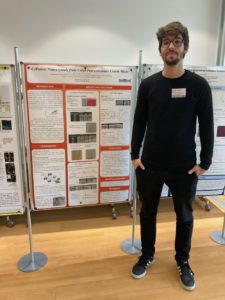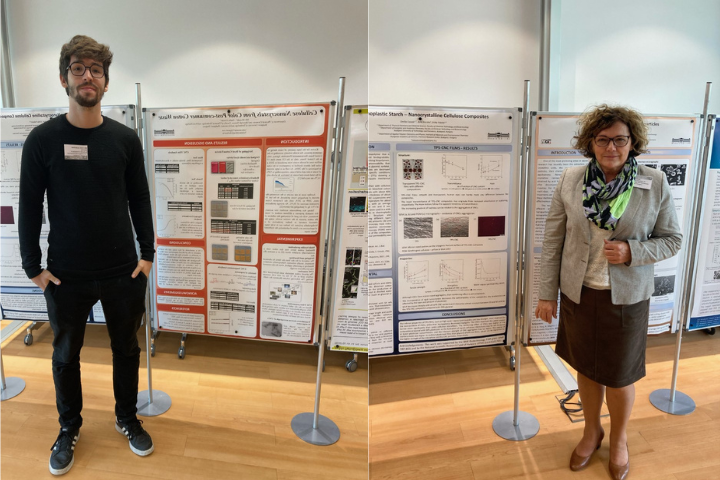Interview with Prof. Emília Csiszár from BME who participated in the Particle Based Materials Symposium at FAU
Particles and particle-based materials (PBM) are everywhere and will play a crucial role to enhance sustainability of processes and products. From 6 to 7 October the Particle Based Materials Symposium took place at Friedrich-Alexander-Universität Erlangen-Nürnberg (FAU) in Erlangen. There experts discussed the use of PBM in fields such as energy (generation, storage, transformation), catalysis, recycling, purification and recovery, extension of materials lifetime or damage indication. Thanks to the EELISA network, also colleagues from the Budapest University of Technology and Economics (BME) and the Université Paris Sciences & Lettre (PSL) took part. Prof. Emília Csiszár from the Department of Physical Chemistry and Materials Science of BME shares her impressions in the interview.
What was your highlight of the conference?
All the presentations at the conference demonstrated the importance of particle-based materials. We have been working with nanocelluloses and nanostarch for a long time. Unfortunately, there was little discussion of the similar, polysaccharide-based particles, nevertheless there were several excellent presentations on inorganic particles, their production, testing, and diverse applications. Although I was unfamiliar with most of the research areas presented, the lectures on different particles, methods, and solutions used in other fields gave me interesting new ideas for my research, which we will follow in the future.
What impressions and insights will you take back to your university?

I had the impression that this conference was an excellent platform especially for undergraduates and Ph.D. students, postdocs to present their work. It was great to see so many young and talented researchers at the conference, I hope many of them will stay in research in their future careers. We heard outstanding presentations in very diverse areas. I am glad that my student – for whom this was the first time attending an international conference – could participate in such a vibrant and dynamic meeting, had the possibility to exchange ideas and see the enthusiasm of his fellow participants.
Could you make new contacts?
Yes, of course. However, this is crucial especially important for young academics – it is important to establish a network of both national and international contacts at the beginning of their careers, and this conference provided an excellent opportunity for that. I hope that the new connections made in Erlangen will turn into scientific friendships and stable, reliable, and fruitful collaborations that young people can build on in their future research careers.
Was it your first time in Erlangen? And what were your thoughts?
Yes, this was my first visit in Erlangen. Unfortunately, I didn’t have much time to look around, but what I saw impressed me. It must be nice to live here, as Erlangen gave a friendly, tidy and calm impression, where everything seems to work well. The autumn colours in the parks were beautiful, and I saw many people sitting outside, enjoying the weather and chatting in the city centre.
What does EELISA mean to you?
In the EELISA Alliance we are working to define a multidisciplinary engineer rooted in society, creating a university course with a European dimension. BME is the lead engineering institute in Hungary and one of the nine university members of the EELISA Association.
As a university leader I find it is essential that the EELISA Alliance offers a broad educational palette that we can use to innovate and redefine engineering education collaboratively, leading to engineering education based on international communities. And this applies not only to the teaching of engineering knowledge but also to the transfer of knowledge from many other disciplines to develop the competencies of graduate engineers.
As a university professor, I am pleased that the EELISA Association is a boost to international mobility, as student, teacher, and researcher members of the communities can participate in ever-expanding trans-European education and research collaborations.


0 comments on ““I hope that the new connections will turn into scientific friendships and stable, reliable, and fruitful collaborations””